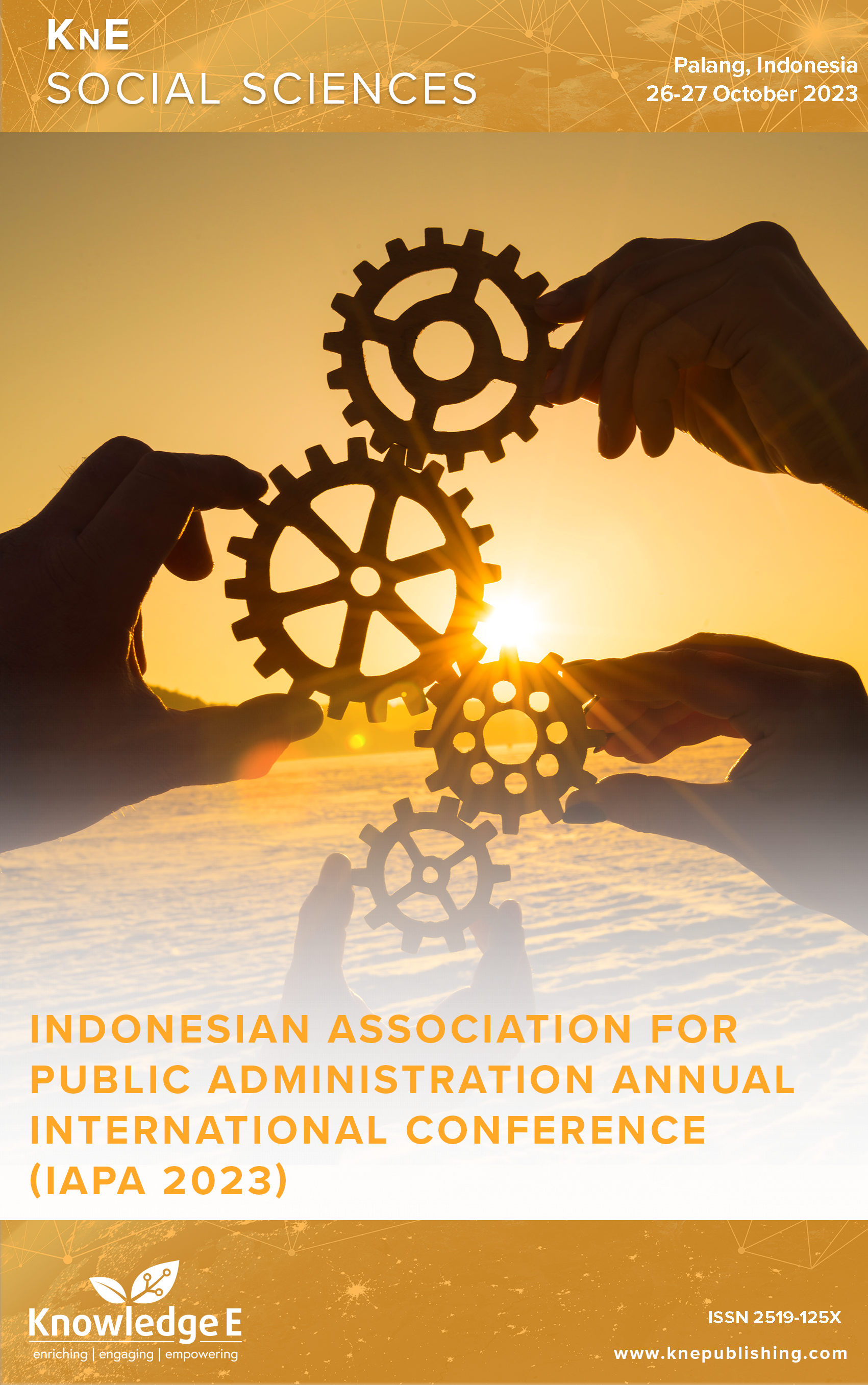Human Rights-based Public Service in the Class IIA Correctional Facility of Bengkulu
DOI:
https://doi.org/10.18502/kss.v9i7.15539Abstract
This study is designed to describe problems related to human rights-based public services in the Class IIA Correctional Facility of Bengkulu from the perspective of implementing human rights-based public service policies consisting of accessibility and availability of facilities, human resources availability, officer compliance, public service innovation, and integrity. This type of research uses a qualitative descriptive methodology with data collection techniques that include observation, interviews, and documentation. Data analysis stages involve data reduction, data presentation, and conclusion. The research findings indicate that the implementation of public service at Class IIA Correctional Facility is not yet optimal, as several issues related to the five research aspects are identified, including the inadequacy of facilities and infrastructure for vulnerable groups, overcrowding in the correctional facility housing blocks, limited quality of prison staff, a lack of innovative service provision, and the presence of alleged irregular practices within the correctional facility. Recommendations for improving future service implementation by the jail include providing adequate facilities and infrastructure, enhancing human resources through education and training, facilitating innovations in public service, and establishing effective monitoring and complaint mechanisms.
Keywords: correctional facility, human rights, public service
References
Setiadi W. “Korupsi di Indonesia (Penyebab, Bahaya, Hambatanm, dan Upaya Pemberantasan, serta Regulasi),” no. 1, pp. 249–262, 2018.
Bayu D. “ICW: Penindakan Kasus Korupsi Meningkat pada 2022,” 2023. https://dataindonesia.id/varia/detail/icw-penindakan-kasus-korupsi-meningkat-pada- 2022 (accessed Sep. 20, 2023).
Sukiyat H. Teori dan Praktik Pendidikan Anti Korupsi. Jakad Media Publishing; 2020.
https://kpk.go.id, “Fungsi dan Tugas KPK,” 2017. http://www.kpk.go.id/id/tentangkpk/ struktur-organisasi/93-tentang-kpk/fungsi-dan-tugas (accessed Sep. 15, 2023).
https://ti.or.id, “INDEKS PERSEPSI KORUPSI INDONESIA 2022,” 2023. https://ti.or.id/indeks-persepsi-korupsi-indonesia-2022-mengalami-penurunanterburuk- sepanjang-sejarah-reformasi/ (accessed Sep. 15, 2023).
Yustia DA, Arifin F. Bureaucratic reform as an effort to prevent corruption in Indonesia. Cogent Soc Sci. 2023;9(1):2166196. DOI: https://doi.org/10.1080/23311886.2023.2166196
Creswell JW. Research Design: Qualitative, Quantitative and Mixed Method Aproaches. SAGE Publ.; 2007. pp. 203–23.
Yin RK. “The abridged version of case study research,” Handb. Appl. Soc. Res. methods, vol. 2, pp. 229–259, 1998.
Mahadi M. BAHASA HUKUM ADAT DALAM PETA BUMI BAHASA-HUKUM NASIONAL. J. Huk. Pembang. 1983;13(3):214–22. DOI: https://doi.org/10.21143/jhp.vol13.no3.962
https://ombudsman.go.id, “Mengenal Maladministrasi,” 2021. https://ombudsman.go.id/artikel/r/artikel–mengenal-maladministrasi (accessed Sep. 15, 2023).
H. Nurtjahjo, “Perbedaan Teoritis Antara Lembaga Penyelesaian Kasus Maladministrasi (Ombudsman) Dengan Lembaga Peradilan Administrasi (PTUN),” J. Huk. dan Bisnis, vol. 2, no. 2, pp. 32–51, 2016.
Ombudsman, Laporan Maladministrasi Tahun 2022. Jakarta: Ombudsman RI; 2023.
Sampara S. Maladministration in the context of the public service. J. Humanit. 2014;02(01):122–35. DOI: https://doi.org/10.14724/02.08
Palifka BJ, Rose-Ackerman S, editors. “Bureaucratic Corruption,” in Corruption and Government: Causes, Consequences, and Reform. 2nd ed. Cambridge: Cambridge University Press; 2016. pp. 51–92. DOI: https://doi.org/10.1017/CBO9781139962933.004
https://kpk.go.id, “Statistik TPK Berdasarkan Instansi,” 2023. https://www.kpk.go.id/id/statistik/penindakan/tpk-berdasarkan-instansi (accessed Oct. 10, 2023).
Suhendi S. Hendi; Ang, Perilaku Organisasi. Bandung: Pustaka Setia; 2010.
Dwiyanto A. Reformasi birokrasi kontekstual. Gadjah Mada University Press; 2015.
https://antikorupsi.org, “Tren Penindakan Kasus Korupsi Tahun 2022,” 2023. https://antikorupsi.org/id/tren-penindakan-kasus-korupsi-tahun-2022 (accessed Sep. 15, 2023).
Graycar A, Jancsics D. Gift Giving and Corruption. Int J Public Adm. 2017 Oct;40(12):1013–23. DOI: https://doi.org/10.1080/01900692.2016.1177833

